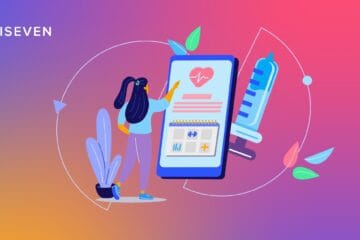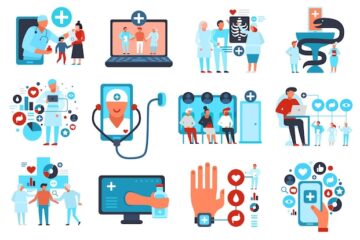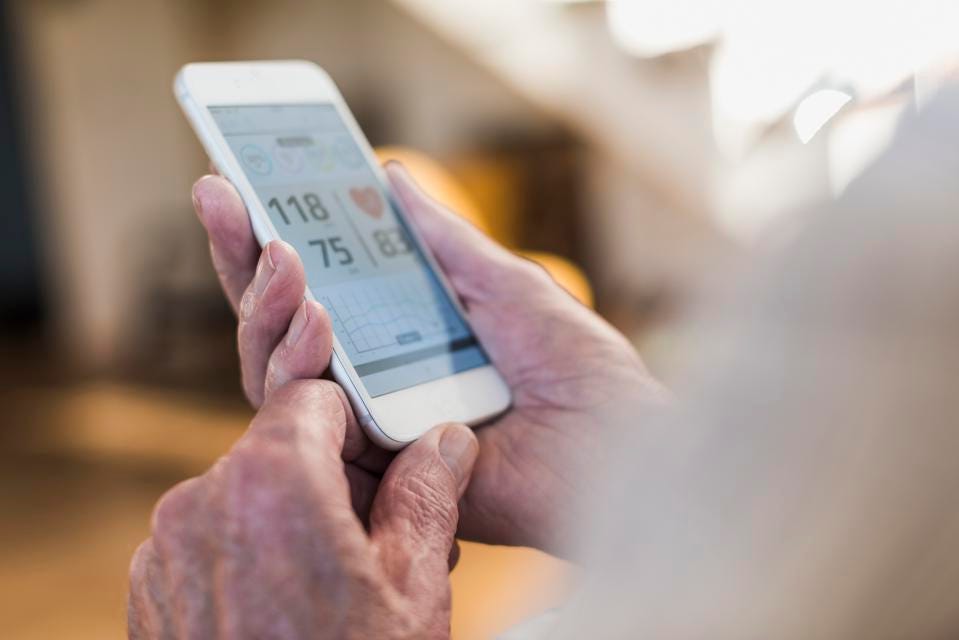THE smartphone is becoming the heart of healthcare with a new wave of Aussie-made apps that do everything from helping people to manage cancer treatment through to early-stage dementia.
Matilda Kubany-Deane, a 22-year-old fine art and design student from Sydney who has been diagnosed with rhabdomyosarcoma, uses the CancerAid app to help manage her treatment and connect with people.
“Cancer is quite an isolating experience so it’s nice to have something like this for support,” Matilda said.
The Australian-made app provides verified information on cancer research and treatment and allows for patients to journal their treatment process in a way they can share with their medical and personal support team.
CancerAid is developed by two Sydney doctors, Dr Raghav Murali-Ganesh and Dr Nikhil Pooviah, who were working together in the cancer ward at the Royal Prince Alfred Hospital in Sydney when they saw the need for providing diagnosed patients with a better information source.
CancerAid is the number one cancer app on the App Store in Australia, the United States, the United Kingdom and Canada.
And the founders say they are about to expand the app to launch to launch two world-first research studies, one looking at the impact of nutrition linked to readmission rates and the other, working with CSIRO, looking at how having a “champion” for sufferers can improve the quality of life for both the patient and carers.
The two doctors behind CancerAid are now working fulltime on their app and call themselves “digital doctors”.
“It’s just another form of medicine. The overarching aim for us is to provide excellent high-quality patient care,” Dr Pooviah said.
“Long term, our goal would be to cross expand this to help even more patients such as those with rheumatoid arthritis, cardiovascular disease and diabetes.”

One of the trends last month at CES, the world’s biggest consumer technology show, was the new generation of medical sensors embedded in clothing and wearable technology that will boost the medical powers of the smartphone, from shirts and earphones that measure heartrate to from a wearable device that will analyse contractions in pregnant women.
In perhaps a sign of things to come, Apple was granted a patent last month for an Apple Watch accessory which shows how body sensors including blood pressure monitors and sweat sensors could be embedded into a smartwatch band.

Melbourne-based app developer Josh Guest, managing director of B2Cloud which has developed several medical-related apps, sees the smartphone as the centre of future healthcare.
“There’s been a lot of movement in the last few years in ancillary devices and wearables and the roles that they play in our health,” he said.
“Ultimately the phone is the hub, it’s the central point. It needs to be where all of that data is captured and processed.
Mr Guest said the next generation of smartphone health apps would increasingly be focused on being proactive rather than a way of just monitoring symptoms.
“What do you do with that data and how do you provide really relevant and timely information to me the consumer or my doctor,” he said.
“It’s interesting I did 10,000 steps or my body temperature is x or y, but so what. So what is “you’re about to have a heart attack’ or ‘you’re about to collapse’ or ‘an ambulance has been called.
“There needs to be that next level and that’s what we’re seeing machine learning and algorithm. We’re building technology that allows the inputs and the sensors to actually give you something that’s meaningful rather than just data points.”
FIVE AUSSIE HEALTH APPS
CancerAid
Gives patients and carers medically reliable information and a way of managing their treatment plus will launch two world-first research programs.
Free
Apple iOS / Google Android coming soon

DreamLab
Produced with the Garvan Institute, the app uses the process power of smartphone to number crunch cancer research.
Free
Google Android
Rise and Recharge
Developed with the Baker IDI Heart and Diabetes Institute, the app is designed to reduce the risk of people developing diabetes by ensuring they move more.
Free
Apple iOS / Google Android
PPD-ACT
An international research project involving a team from the University of Queensland, the app is aimed at women who have suffered post-partum depression and is looking at the genetic links. A pilot study involving researchers in Adelaide will start soon collecting more detailed real-time information from participants.
Free
Apple iOS
Brainy App
Produced by Alzheimer’s Australia, the app encourages physical activity and mental challenges to reduce the risk of developing dementia.
[Source:-The Advertiser]





